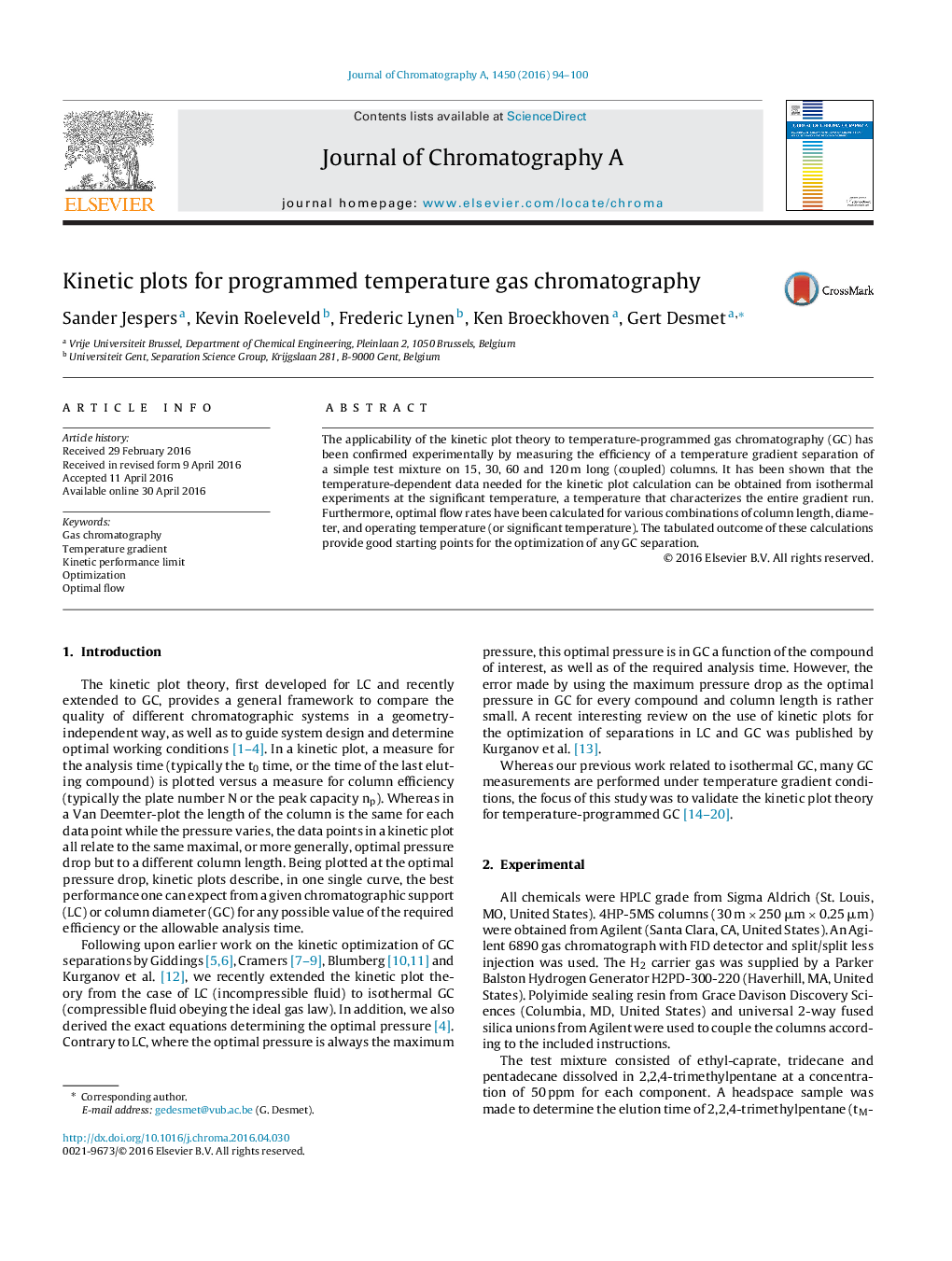| Article ID | Journal | Published Year | Pages | File Type |
|---|---|---|---|---|
| 1198647 | Journal of Chromatography A | 2016 | 7 Pages |
•The kinetic plot theory is extended to temperature-programmed gas chromatography.•Experimental validation of the theory is provided.•The required temperature-dependent data can be determined from isothermal experiments.•A method to accurately determine optimal flow rates is given.•Tables listing the optimal flow rate for a broad range of conditions are constructed.
The applicability of the kinetic plot theory to temperature-programmed gas chromatography (GC) has been confirmed experimentally by measuring the efficiency of a temperature gradient separation of a simple test mixture on 15, 30, 60 and 120 m long (coupled) columns. It has been shown that the temperature-dependent data needed for the kinetic plot calculation can be obtained from isothermal experiments at the significant temperature, a temperature that characterizes the entire gradient run. Furthermore, optimal flow rates have been calculated for various combinations of column length, diameter, and operating temperature (or significant temperature). The tabulated outcome of these calculations provide good starting points for the optimization of any GC separation.
